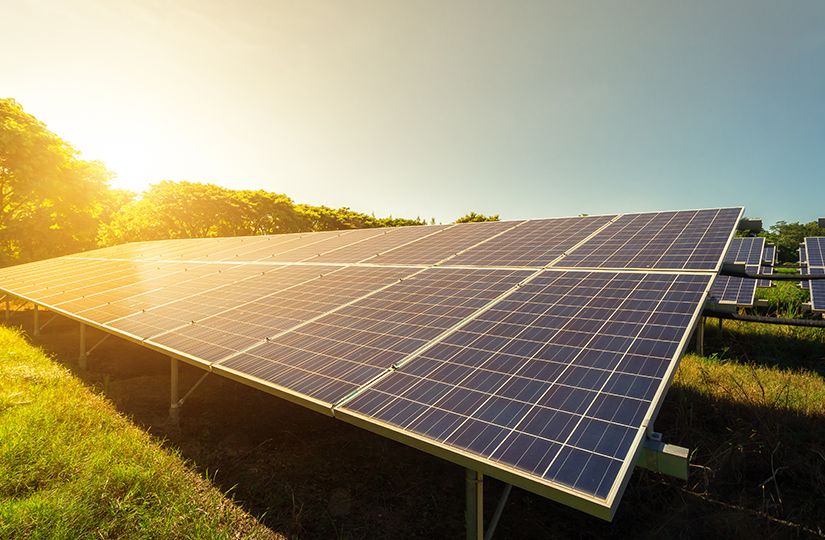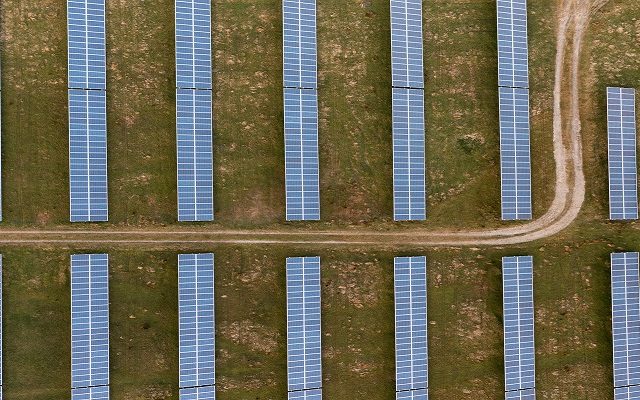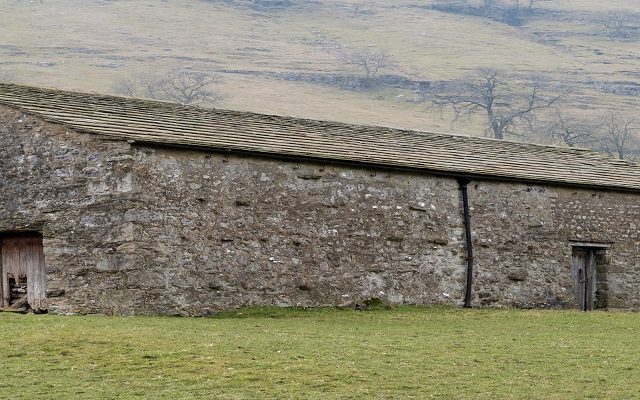Solar farm offers need careful thought
Large-scale solar has been a principle go-to technology in the UK’s drive towards greener energy, and the demise of government subsidies has done little to dent the appetite among developers looking to secure new farmland sites.
The solar energy generated is commonly supplied to an off taker, usually the local electricity grid operator via a Power Purchase Agreement (PPA). This, coupled with big increases in solar panel efficiency and falling equipment costs over the past decade, means large-scale projects no longer need financial support to be viable, especially when battery storage can be added to manage variations in power generation and access other income streams.
With relatively stable financial returns over many years, solar farms are increasingly seen as a safe option for investment funds amidst an uncertain global economy, with the added benefit of improving “green credentials”.
LAND FOR SOLAR IN DEMAND
This has all resulted in plenty of landowners being approached by developers or third party ‘site finders’ offering attractive deals in an attempt to secure sizeable parcels of land of typically 60-120 ha (150-300 acres) to build large, up to typically 50 MW arrays, which give developers economy of scale.
Contact details are often acquired via the Land Registry, which means enquiries don’t always go to the main decision maker, and even when they do, details about exactly what is being offered can be rather vague and somewhat speculative.
Letters may suggest land is ‘suitable for a solar farm’ and ask that individuals sign an exclusivity agreement and/or letter of authority allowing them to apply for a connection to the local electricity grid.
But before agreeing to anything, it is essential to step back, think carefully about what is being offered and seek professional advice. It is all too easy to sign up to something that looks good on the outside, but then discover hidden caveats and costs, or find you could have negotiated a better deal in the first place.
A guaranteed, index-linked rent of £600 per acre for 40 years may sound attractive compared with the £150-200/ acre from a farm business tenancy, for example, but many solar rentals being agreed are nearer £950/ acre plus an additional payment if batteries are being installed, or will be in the future. Indeed, developers often reserve the right to install battery systems at a later date, so it is important landowners don’t lose out if this is done.
Equally, solar panel technology and efficiency is improving all the time, such as the launch of bifacial (double-sided) panels, thereby increasing the power generating capacity from any given site, so it is well worth negotiating in addition a % payment linked to gross annual income from the scheme.
Large solar farms require a lot of land, and with rental agreements lasting for up to 40 years, choosing to take such a sizeable area out of agricultural production must be right for the individual business, both now and in the future.
NEGOTIATING A GOOD SOLAR FARM DEAL
If it is the right option, avoid the temptation to sign up to the first person that comes knocking on the door. Landowners with suitable sites and close proximity of land to a local grid with available capacity are in a relatively strong negotiating position, so it pays to ‘shop around’.
Using a consultant offers a significant advantage in this respect, as we know the market and regularly work with a range of developers we know and trust, so can help you find the best deal and conduct the necessary due diligence on the companies involved. In most cases developers will also pay the consultancy and legal fees for new projects.
Once a chosen developer has been selected, the formal process involves negotiating the initial ‘heads of terms’, which set out the main elements of any agreement (e.g. base rent, duration, responsibilities during/after installation, etc.). Although not legally binding, it is best to get these details agreed in principle at an early stage to avoid problems further down the line, particularly if the project is sold on to a third party.
Discussion should also consider how the developer will rectify any land or estate infrastructure (e.g. farm tracks, drainage systems) damaged during construction. It may be necessary to keep a library of before and after photographs or other site reports (e.g. soil assessments from an agronomist) to ensure land is left in a satisfactory condition.
Developers will be obliged to revert land back to agricultural production at the end of the lease (even if extended) so there should also be clear provision for how this will be funded. This usually takes the form of a ‘decommissioning bond’, which is essentially a pot of money held by a third party that the developer pays into to fund clear-up costs.
It is only once heads of terms have been agreed that landowners should sign any ‘letter of authority’ granting permission for the developer to apply for a new connection to the local grid.
The availability of grid capacity remains a big hurdle to overcome in many areas, particularly where there has been a lot of energy development in recent years, such as southern and southwest England. But the situation is constantly changing as infrastructure is upgraded and new capacity becomes available, so projects that were thwarted by lack of grid capacity several years ago may now be able to go ahead.
Once a grid connection is in place, it is then that the formal, legally-binding option and lease agreement is signed and work can commence building the project.
Whether solar farm sites change hands several times throughout their lifetime, or stay with the one developer, it is vital landowners put themselves in as strong a position as possible right from the outset. Many farmers are good negotiators, but the solar energy sector is far removed from traditional farming and estate ownership, so it almost always pays to seek specialist advice and find out whether that deal really is too good to be true.






